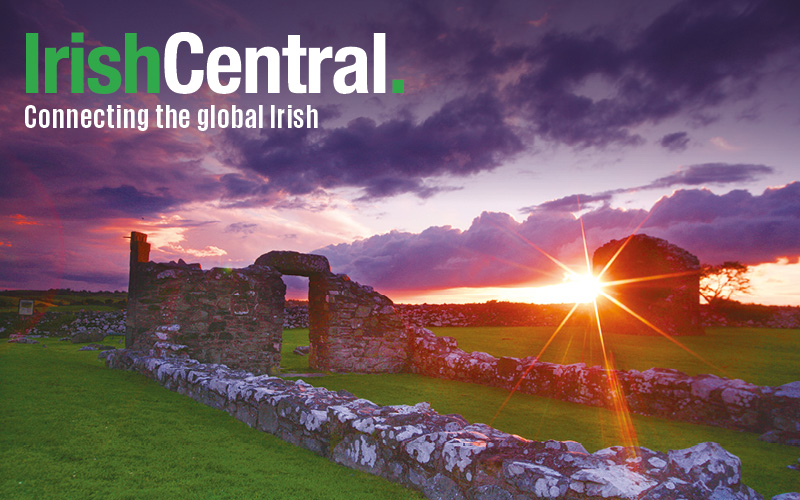A leading Muslim cleric has warned against the influence of extremists, who he thinks could come from the UK and infiltrate the Muslim community in Ireland.
Shaykh Dr. Umar Al-Qadri believes that although extremism is not yet an issue in Ireland, there is a danger of extremist Islamic groups in the UK showing a greater interest in Muslims across the Irish Sea and attempting to recruit them.
He warned the estimated 60,000 Muslims in the Irish Islamic community to be vigilant and stated that education must be put in place to prevent the problem.
“A few years ago, radical Muslim groups would have had no interest in Ireland, but now I see they have an interest,” Dr. Al-Qadri told the Irish Times.
“I am seeing organizations that have their own offices in England and I am seeing them opening branches here and trying to get a hold in the Irish Muslim community.”
Dr. Al-Qadri went on to say that he was already aware of one extremist Muslim who had moved to Ireland from the UK, although he had no evidence he was attempting to radicalize or recruit Irish men.
This is not to say that radicalization is not happening, he warned. Thirty or so Irish Muslims have already traveled to Syria as a result of grooming and recruitment carried out over the internet.
Read more: Muslim leaders to create political action group for Irish election.
Dr. Al-Qadri is currently the chair of the Irish Muslim Peace and Integration Council and Imam of the mosque at Blanchardstown in Dublin. The Irish Muslim Peace and Integration Council is a nationwide Muslim body in Ireland established to provide a forum where the Irish Muslim community can speak as one recognized voice on matters relating to their well-being in Ireland. They also aim to encourage individual Muslims and Muslim organizations to play a full and participatory role in Irish public life.
In July 2015, the organization held a “Not in Our Name” protest in Dublin in which they condemned the use of violence by ISIS as a distortion of their beliefs and called on Muslims in Ireland to adopt a strategy which would prevent radicalization.
They also released a document entitled “Irish Muslim Declaration of Peace and Guide to Prevent Radicalisation,” a strategy against radicalization in Ireland.
Dr. Al-Qadri still believes that these measures need to be adopted if extremism in Ireland is to be prevented.
“If we don’t have preventative measures to make us immune from radicalization, then we will end up like Muslim communities in Europe and the UK which have a significant problem with extremism,” he said.
“We need to ensure that certain things are taught in Islamic weekend schools – that young people are equipped with the necessary knowledge to interpret Islam correctly and know it is not violent.”
As an outcome of the Paris attacks and the sexual assaults in Cologne, Germany, on New Year’s Eve, Dr. Al-Qadri believes there has been a rise in Islamophobia in Ireland, but that the Irish people’s own history makes them generally more tolerant.
“I think the Muslim community are feeling here what the Irish community was feeling in the UK 40 years ago when there were bomb attacks by the IRA. People are afraid,” he said.
“But I think Irish people, because of their own experience in the UK in the 1970s and 1980s, understand the position of Muslims and know you cannot brush them all with the same comb.”
Read more: Leading Irish Muslim-born figure says “ignorance surrounds Muslim culture” in Ireland.
The Imam was also quick to condemn a controversial website recently brought to the attention of the Gardai (Irish police) which he believes was created in order to incite Islamophobia.
The site, hijra2ireland.com, showcased Ireland as a perfect haven for would-be Muslim migrants, stating that they could easily come and stay in the country illegally, they would have access to medical care even Irish citizens don’t have, and that, thanks to the rejuvenated Irish economy, there are many jobs available that Irish people will not be happy to do.
On the homepage was an image of Dublin saying, “New Golden Age of Islam.” The group stated they were “non-political body that has set a goal to bring as many Muslims to the state as possible.”
Dr. Al-Qadri believed the website, whose origins are still unknown, was “shocking” and an attempt to undermine their work in helping the Muslim community to successfully integrate into Irish life.
“It is undermining the work that we do to show that Islam and Muslims are compatible with Western society,” he said.
Islam still remains a minority religion in Ireland although it is the most popular non-Christian faith practiced in the country. The 2011 census stated that 49,204 Muslims live in the Republic (1.07%), a 51 percent increase on the 2006 figure. That number is sure to rise again come the 2016 census. It is now estimated that there are 60,000 Muslims living in Ireland. According to census figures, 30.7 percent of Muslims in the country have Irish nationality.
What do you think are the best ways to prevent the possibility of extremists in Ireland? Leave your thoughts in the comments section, below.




Comments